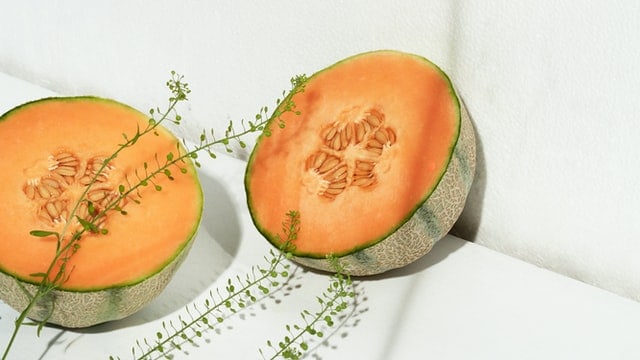Is Cantaloupe Good for Diabetics
Cantaloupe
The cantaloupe is a juicy, orange summer fruit that’s related to the watermelon and honeydew melon. It also belongs to the same plant family as cucumbers, pumpkins, squashes, and gourds.
The semi-sweet cantaloupes most familiar to people in the U.S. are a type of muskmelon called Cucumis melo reticulatus. The scientific name stems in part from the word “reticulated,” describing the cantaloupe’s rough, webbed outer skin.
People have grown cantaloupes for thousands of years. Most people agree it likely first grew in Persia (modern Iran). The fruit made its way to the New World with Christopher Columbus during his second voyage in the late 1400s.
Cantaloupe Nutrition
Like many fruits and vegetables, cantaloupe is mostly water. One cup of fresh cubes has 144 calories, 6% of your daily serving of fiber, and zero fat and cholesterol.
- 100% of the daily value for vitamin C, a powerful antioxidant that protects your cells from damage
- All your daily need for vitamin A, which helps keep your eyes, skin, bones, and immune system healthy
- About 12% of your recommended daily potassium, important for your heart, muscles, and blood pressure
Cantaloupe is also full of vitamins and minerals like:
- Folic acid
- Calcium
- Zinc
- Copper
- Iron
- Vitamin K
- Niacin
- Choline
- Magnesium
- Phosphorus
- Manganese
- Selenium
Cantaloupe Health Benefits
It’s low in carbs. Cantaloupes are 90% water. That’s almost as juicy as a watermelon. The high amount of liquid content gives cantaloupes a low glycemic load score of 4. That means your body digests it slowly and it won’t make your blood sugar spike. So it’s a great pick for people with diabetes.
It hydrates you. Cantaloupes are filled with electrolytes. These minerals balance body fluids in your body and keep it working right. That helps you stay hydrated and full of energy.
It may help fight diseases . Compounds called phytonutrients in cantaloupes give it anti-inflammatory properties. It’s a good part of a healthy diet.
Cantaloupe Health Risks
Cantaloupes are one of the most common fruits and vegetables involved in foodborne illnesses. Its textured, net-like rind can harbor bugs that cause illness. Wash the outside under running water with a vegetable brush. Rinse your knife after each cut to avoid contamination.
The plentiful vitamins and minerals in cantaloupes can sometimes cause problems:
- Potassium. Cantaloupes are a good source of this mineral, which can help lower your blood pressure. But too much of it may cause problems if you have kidney disease. That’s because your organs may not be able to filter out all the extra potassium, This can lead to a serious condition called hyperkalemia.
- Fiber. You also may want to limit how much cantaloupe you eat if you have cancer, had bowel surgery, or have an inflammatory disease. Large amounts of fiber from the fruit can be hard on your intestines if you have diarrhea, cramping, or trouble digesting food.
Cantaloupe Recipes
Slice into a cleaned cantaloupe and remove the seeds. You can scoop out the fruit or peel the rind. Refrigerate the cut fruit, and eat it in 2-3 days. Or freeze chunks between wax paper and keep for up to a month.
Here are some ways to enjoy cantaloupes:
On its own. Simply cube, scoop, or slice it for a snack or healthy dessert.
Add it to a salad. Sprinkle pieces of cantaloupe into any salad for a sweet touch. In fruit salads, it mixes well with berries, mangos, and avocados.
Have it for breakfast. Create a breakfast parfait with layers of Greek yogurt, granola, and the fruit. Or use a cantaloupe half as the bowl itself and fill it with the yogurt and toppings.
Chill it for soup. Puree the fruit until smooth. Wisk in citrus juices (orange, lime, lemon) and a bit of honey, cinnamon, and salt.
Eat the seeds . Roast the cleaned seeds in the oven. Eat them for a healthy snack or add them to granola.
Show Sources
American Cancer Society: “Low-Fiber Foods.”
American Heart Association: “About Metabolic Syndrome.”
Defeat Diabetes Foundation: “Cantaloupe.”
FDA: “Vitamins,” “Minerals,” “Key Nutrients and Your Health.”
Food Source Information Wiki (Colorado): “Cantaloupes.”
Harvard Health Publishing: “Foods that fight inflammation.”
Mayo Clinic: “Low-fiber diet do’s and don’ts.”
National Institutes of Health: “Vitamin C.”
National Kidney Foundation: “Six Steps to Controlling High Potassium.”
Produce for Better Health Foundation: “Top 10 Ways to Enjoy Cantaloupe.”
University of California: “Cantaloupes: Safe Methods to Store, Preserve, and Enjoy.”
U.S. Department of Agriculture: “Basic Report: 09181, Melons, cantaloupe, raw,” “Fruit and Tree Nut Year Book Tables 2016,” “National Nutrient Database for Standard Reference Legacy Release.”
University of Maryland Extension: “Cantaloupe.”
Food52: “Chilled Cantaloupe Soup.”
Is Cantaloupe Good for Diabetics?
You’ve probably heard some people say fruits are bad for people with diabetes because they’re sweet and also sources of carbohydrates, but that’s not entirely true. Despite the many health benefits fruits have, some have high sugar, but not all.

Some fruits have low sugar content, while some have high sugar content.. which category do you think cantaloupes fit in?
Cantaloupes are a species of melon and they are of two different types: the North American cantaloupe, Cucumis melo reticulatus and the European cantaloupe-Cucumis Melo Cantalupensis. Both have distinct features, they are both orange-skinned and nutritious, but the North American variant’s skin has the geometric structure of a net, while the European skin is slightly ribbed.
- Nutritional Facts of Cantaloupe
- Benefits of Cantaloupe for Diabetics
- It may help reduce blood pressure.
- It helps improve heart health.
- It keeps you hydrated.
- It helps you control blood sugar levels.
- It is rich in antioxidants.
- It helps prevent obesity and maintain a healthy body weight.
- You can easily add it to your diet.
Many studies have revealed that the cantaloupe has a lot of immediate and long-term benefits with a lot of nutrients beneficial to people with diabetes. That doesn’t mean it is going to treat your diabetes.
Nutritional Facts of Cantaloupe
Cantaloupe is packed with a whole lot of nutrients, and 90% of a cantaloupe is water, so Its glycemic load is low, and it helps keep you hydrated. 1 cup of cantaloupe usually contains 54 calories. Other nutrients include:
- Sodium: 26g
- Protein: 1g
- Carbohydrate: 14g
- Fiber: 1g
- Sugar: 13g
- Cholesterol: 0 mg
It also contains high contents of other minerals like calcium, manganese, magnesium, copper, potassium, iron, selenium, zinc, and phosphorus. And also, vitamins like; B vitamins, vitamin K, vitamin C, vitamin D, vitamin E, folate which work together to help the body function properly and remain healthy.
Benefits of Cantaloupe for Diabetics

It may help reduce blood pressure.
People with diabetes are at risk of high blood pressure because glucose usually accumulates in the bloodstream. This can cause damage to the blood vessels and kidneys, and both play a vital role in maintaining blood pressure. There can be damage to the arteries causing atherosclerosis, which hardens them and makes them unable to stretch easily, putting an unnecessary burden on the blood vessels increasing the blood pressure.
This rise in blood pressure in a person with diabetes usually results in many complications like retinopathy, nephropathy, and neuropathy, which are diabetic diseases of the eyes, kidneys, and neurons, respectively. Cantaloupe is low in sodium and high in potassium, and studies have shown that foods low in sodium and high in potassium help regulate blood pressure.
It helps improve heart health.
Eating cantaloupes can reduce your risk of heart diseases, heart attacks, or strokes. The fiber, potassium, and choline content all support heart health. When too high a blood glucose level occurs, it can damage blood vessels and the nerves that control the heart leading to atherosclerosis which means hardening the arteries. It reduces the blood flow rate to the heart and brain, which is usually the cause of heart attack and stroke.
Heart attacks can also be caused by increased levels of LDL, also known as bad cholesterol and triglycerides in the blood. Cantaloupe has no cholesterol, so there’s no risk of an increase in cholesterol levels. And although it helps maintain blood sugar levels preventing further damage to the blood vessels and reducing the risk of people with diabetes suffering from heart diseases.
It keeps you hydrated.
People with diabetes are often dehydrated because the kidney excretes excess urine to rid the body of excess sugar. If the body becomes dehydrated and water is drawn from other sources like saliva and tears. Increasing your daily water intake can counter this, and since cantaloupe has a 90% water content, including it in your diet helps you stay hydrated.
Asides from that, both healthy people and people with diabetes should constantly be hydrated. Cantaloupe has a high water content that helps you stay hydrated. And in non-diabetics, studies have shown that increased water intake can reduce the risk of hyperglycemia and subsequent diabetes. Being hydrated also reduces the risk of complications usually associated with diabetes, like high blood pressure and heart problems.
It helps you control blood sugar levels.
The high water content of cantaloupe increases the water content in our bodies and helps the body flush out excess glucose, thereby reducing the blood glucose levels of people with diabetes. Although cantaloupe contains carbs and, when eating, can cause a momentary spike in your blood glucose levels, it contains fiber and other nutrients that control blood sugar levels over time. Also, cantaloupe has a low glycemic index of 4, which makes the body digest it slowly, preventing a sudden spike in blood sugar levels.
It is rich in antioxidants.
Cantaloupe is packed with antioxidants that are beneficial to the general health of the body. It boosts the functioning of the human immune system and helps treat a wide range of diseases and infections. Cantaloupe contains vitamin C, an essential vitamin for activating the immune system processing and its proper functioning.
It also contains compounds called phytonutrients that boost immunity and help in the attack against infectious diseases. And also, vitamin A that not only boosts immunity but is involved in the production of white blood cells. Antioxidants also fight against free radicals, free radicals damage DNA in cells, which often results in chronic inflammation, which can be a lot of trouble healthwise for people with diabetes. Eating a diet rich in antioxidants helps prevent damages caused by free radicals.
It helps prevent obesity and maintain a healthy body weight.
Cantaloupe contains fiber which activates a hormone called ghrelin that help you feel full. So when you eat cantaloupe you will avoid binge eating, which is sometimes the cause of unhealthy weight gain. Asides from that, cantaloupe has no cholesterol, which is another cause for unhealthy weight gain.
So eating cantaloupe reduces the risk of weight gain. Obesity is something diabetics should try to avoid at all costs because it is a risk factor for many diabetic complications, including high blood pressure and heart disease.
You can easily add it to your diet.
There’s no one way to eat cantaloupe. You can dice the fruit and eat it fresh. You can make a tropical fruit salad and mix it with fruits like mangoes, papaya, and pineapple. Cantaloupe can also be sliced and added to lemonade or ice water, can be added into fruit kebabs, smoothies, or even fresh salsa. There are various fun ways of eating cantaloupe.
Risks of Eating Cantaloupe
Although cantaloupe has a lot of benefits, you should consume it only once in a while and in moderation. Risks associated with eating cantaloupe include:
Possible increase in blood sugar levels: although cantaloupes have a low glycemic load of 4, they have a glycemic index of 64 and fall within the moderate glycemic index range. Overeating cantaloupe increases the possibility of a rise in blood sugar levels. You can count the number of carbs to make sure you won’t eat more than the daily required calorie intake for a day.
Kidney problems: cantaloupe has a high potassium content, and even if potassium is beneficial to the body and helps maintain blood pressure sometimes high potassium levels can lead to kidney damage.
Allergic reactions: people suffering from ragweed pollen allergies cannot eat cantaloupe. If they eat cantaloupe, their throats and lips may feel itchy, or they might experience swelling on their lips, tongues, and throats.
Contamination: Cantaloupes are prone to contamination because they’re grown close to the ground. Before they get harvested, they might have been contaminated by bacteria from the soil, water or animals like salmonella or E.coli. The rough skin of the cantaloupe also increases the risk of it being infected as it can trap bacteria.
How to choose a good cantaloupe

Cantaloupes are available all year round but are sweetest in season, which is summer. When you’re picking cantaloupes, look out for ones that are symmetrical and also a little heavy. They should also be firm and creamy, light yellow-orange. Try to pick ones that have no greens. Ripe cantaloupes have this summer-like smell, sweet and a little musky. Also, try to eat it within 3 days of purchase while it’s still fresh.
Conclusion
Cantaloupes are very nutritious fruits and have many benefits for hair, skin, eyes and bones. People with diabetes can eat cantaloupes but they should eat them in moderation as overeating can cause some health problems.
What are the worst fruits for someone with diabetes?
Fruit is a nutritious option for people with diabetes. However, some fruit products, such as juices and dried fruit, have a high sugar content. This can cause blood sugar to spike.

The National Institute of Diabetes and Digestive and Kidney Diseases recommend that people with diabetes include fruits as part of a balanced diet.
Eating fruits and vegetables may put a person at lower risk of developing heart disease and cancer. Fruit is also an important source of vitamins, minerals, and fiber.
However, fruit can also be high in sugar. People with diabetes must keep a watchful eye on their sugar intake to avoid blood sugar spikes.
That said, there is a difference between the type of sugar in fruit and the type of sugar in other foods, such as chocolate and baked goods.
This article will explore which fruits a person with diabetes should eat and avoid and how they relate to diabetes.
In general, a person should not have to exclude fruit from their diet. In fact, one 2017 study suggests that eating fruit can actually help prevent diabetes.
However, it may be worth people who already have diabetes limiting their intake of the following fruits.
Fruits high in sugar
The glycemic index (GI) shows how much a certain food can raise a person’s blood sugar after they have eaten it.
If a food has a GI score of between 70 and 100, it is high in sugar. Some fruits with a score in this range include:
These fruits are still safe for a person with diabetes to eat. However, they should do so in moderation. Consuming larger portions of fruits that have lower GI scores may be more suitable for a person with diabetes.
Most other fruits have a low-to-medium GI score. Learn more about low and medium GI foods here.
The sugar myth
Many people believe that since fruit is often high in sugar, people with diabetes should avoid it.
However, the sugars in fresh fruit are not “free” sugars. Free sugars are added sugars and those present in honey, syrups, nectars, and unsweetened fruit and vegetable juices. The sugar in fresh fruit is fructose, which does not have much of an effect on a person’s blood sugar or insulin levels, according to one 2017 article .
Foods such as chocolate, baked goods, and some sodas have high levels of free sugars, which do cause spikes in blood sugar.
Fruits high in carbohydrates
According to Diabetes UK, the amount of carbs a person eats has the most impact on their blood sugar levels.
If a person is following a low carb diet, they should identify which carbs they are eating that are low in nutrients or unhealthy in other ways and cut those out first. Fresh fruit carries many health benefits, so it may not be first on the list.
This table outlines the carb content in several fruits compared with other high carb foods:
Food Carb content 1 medium apple 15–20 grams (g) 1 chocolate muffin 55 g 1 large banana 30 g 500 milliliters of an ordinary soda 54 g 1 serving of dried fruit 20 g





